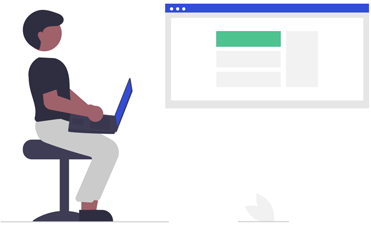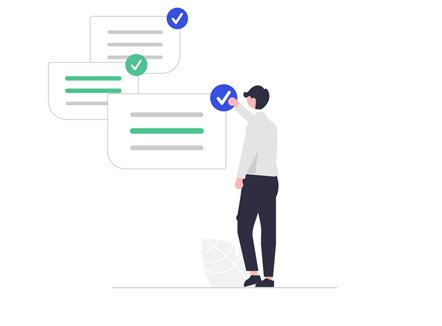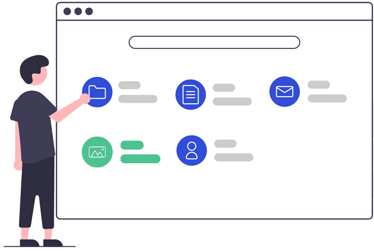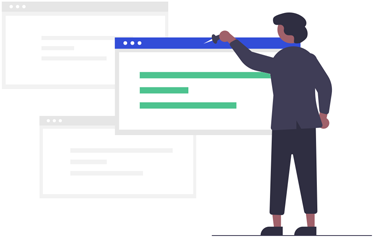On-Page SEO: The Complete Guide
If you’re running a business, you must ensure you’re doing everything possible to position your website and contact information at the top of search engines. One of the most critical tasks of SEO is on-page optimization. We will explain everything you should know about on-page SEO to get search engines to recommend your business to potential customers looking for your products or services. We’ll cover topics such as title tags, meta descriptions, header tags, and more!

What is On-Page SEO?
On-page SEO involves optimizing your website’s title tags, meta descriptions, header tags, and more. The goal of on-page SEO is to help Google and other search engines understand your website and what search terms your website should be recommended for.

Critical elements of On-Page SEO
- Title tags:
The text that appears in the search engine results pages (SERPs) when your website comes up is the title tag. It should be easy to read and include your target keyword. - Meta descriptions:
The meta description is the short paragraph of text that appears under your title tag on the SERPs. It should be interesting and further elaborate on what your website is about.
- Header tags:
Header tags are used to structure your content on the page. They assist search engines in understanding the hierarchy of your content. There are six types of header tags, from h1 (the most important) to h6 (the least important).

How often should I do on-page SEO?
You should do on-page SEO regularly, especially if you’re making changes to your website or publishing new content. However, you don’t need to do it every day. Once a week or once a month should be sufficient.

What are some common on-page SEO mistakes?
This is a free tool that you can use to track your website’s traffic and performance.

Keyword stuffing:
Keyword stuffing is cramming as many keywords into your title tags, meta descriptions, and content as possible. This is not recommended because your website could look spammy, hurting your ranking on the SERPs.

Not adding header tags:
Header tags assist search engines in understanding the hierarchy of your content. If you don’t use them, your content will be more challenging for search engines to understand, and they may not rank your website highly.

Not optimizing your images:
Use keywords in the file name of every image you upload to your website and add info to the alt text field with a brief image description. This process will help search engines index your images and improve your ranking on image search.
What are some On-Page SEO tips?
- Use your target keyword in your title tag and meta description.
- Ensure your header tags are correctly formatted and include your target keyword.
- Add keyword-rich titles and descriptions to help improve your click-through rate (CTR).
- Optimize your website’s images by including keywords in the file names and ALT text.
- Use internal links to help search engines understand the relationship between your pages.
- Make sure your website is mobile-friendly as more and more people are using their smartphones to search the internet.
- Regularly add new content to your website to keep people coming back.
- Monitor your website’s performance on search engines and make necessary changes.
- Improve the user experience to engage users for a more extended period of time and to encourage them to contact your business.
- Look for professional help if you’re having trouble with on-page SEO or any other aspect of SEO.
What are the best content management systems to
make on-page SEO easy?
WordPress:
WordPress is one of the most popular CMS options, and plenty of plugins are available to help with on-page SEO.
Drupal:
Drupal is another popular CMS that has on-page SEO modules available.
Joomla:
Joomla also has on-page SEO extensions that can help with optimization.
Wix:
Wix is a website builder that has on-page SEO features built in.
Squarespace:
Squarespace is another website builder that includes on-page SEO tools.
If you’re not sure which content management system to use, we recommend WordPress as it is the easiest to use and has the most on-page SEO features.
On-page optimization is an integral part of any business’ SEO strategy. Following the tips above can help your website rank higher on search engines and attract more targeted traffic.
If you need assistance, we have a team of On-Page SEO experts to help you achieve your goals. Click Here to learn more about our services at Cleartail Marketing and watch video testimonials from our clients. Please make sure to contact us if you have any questions!


